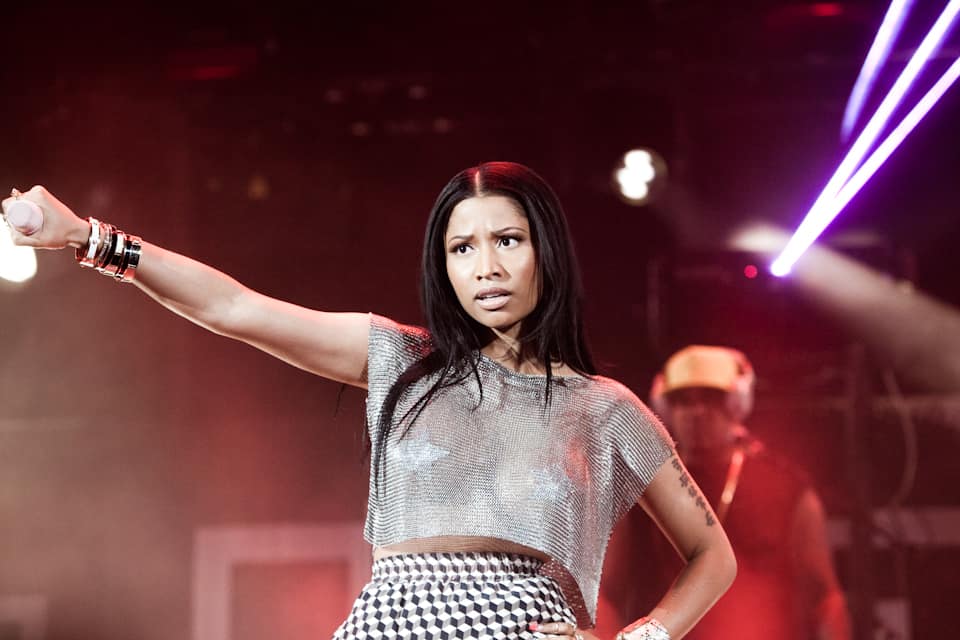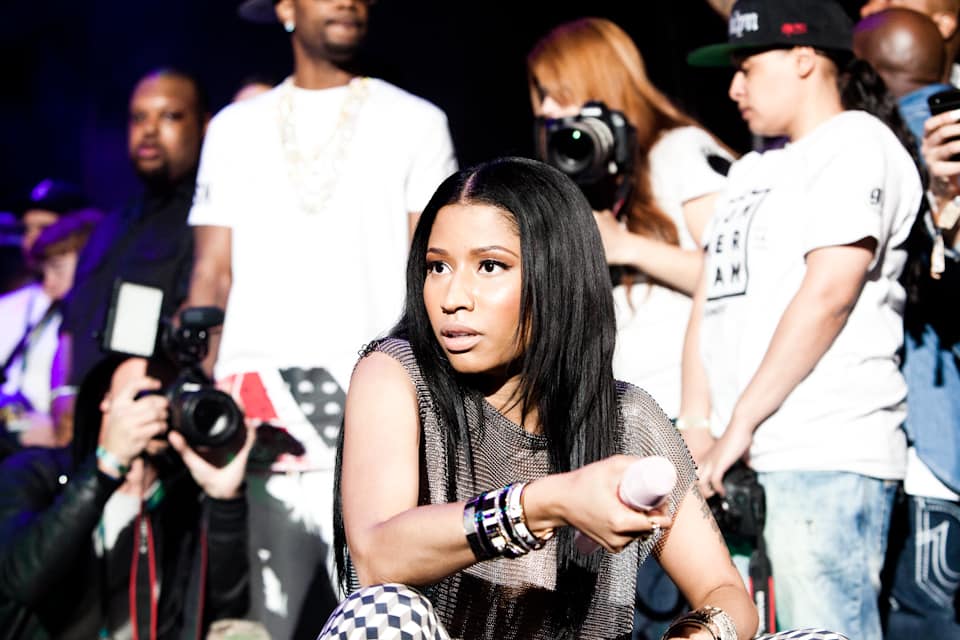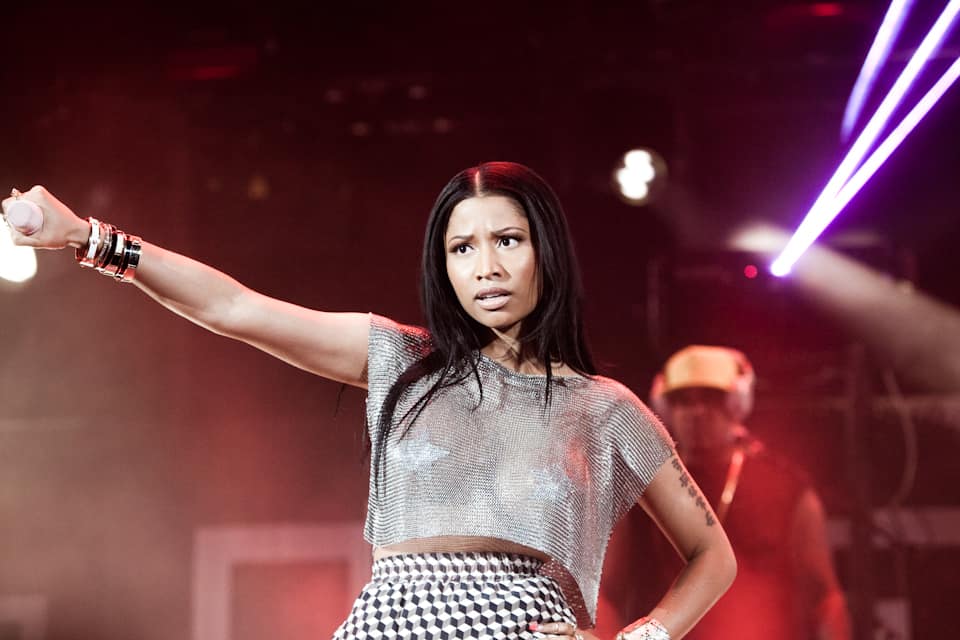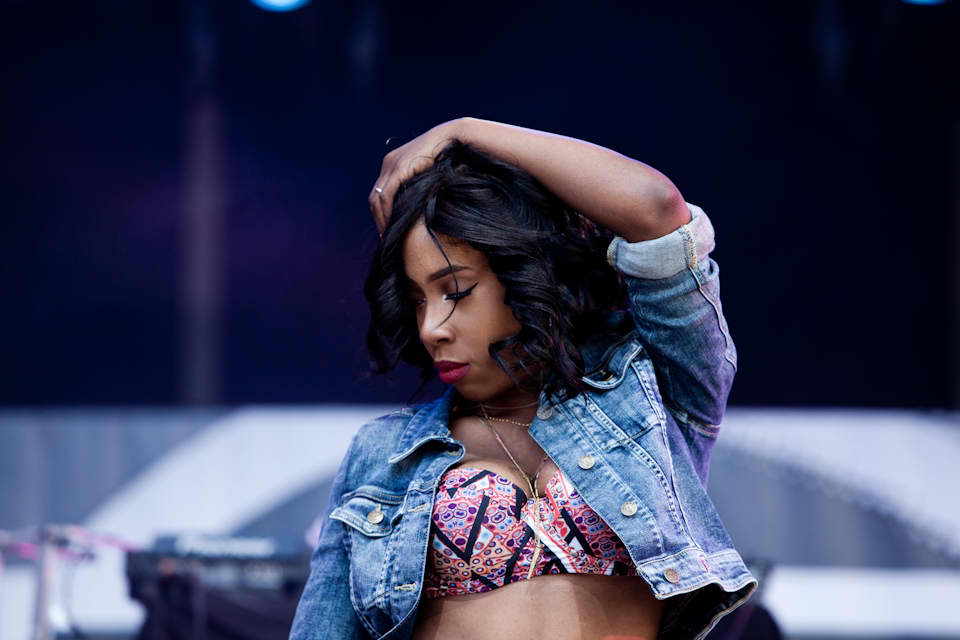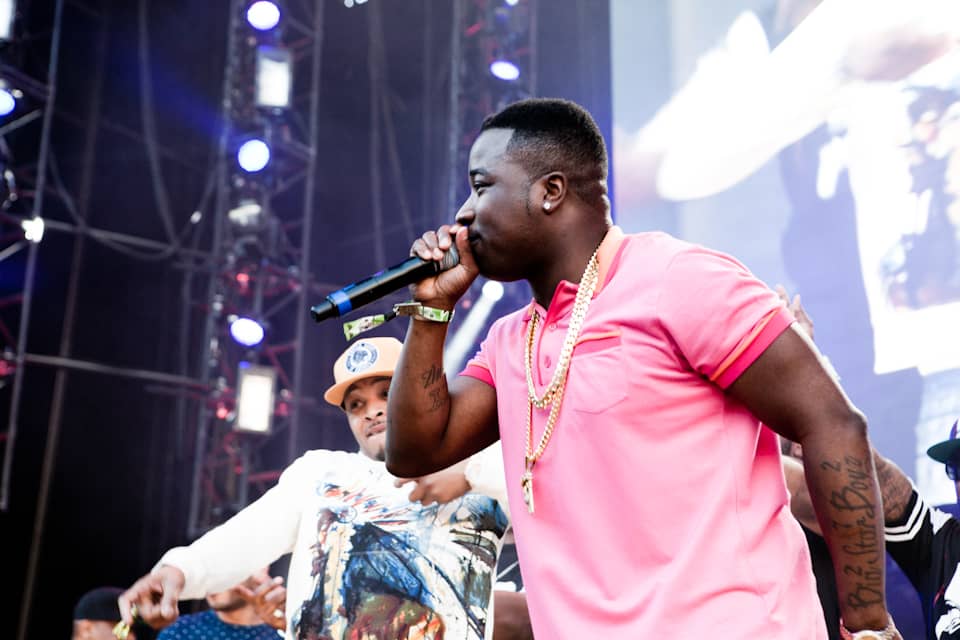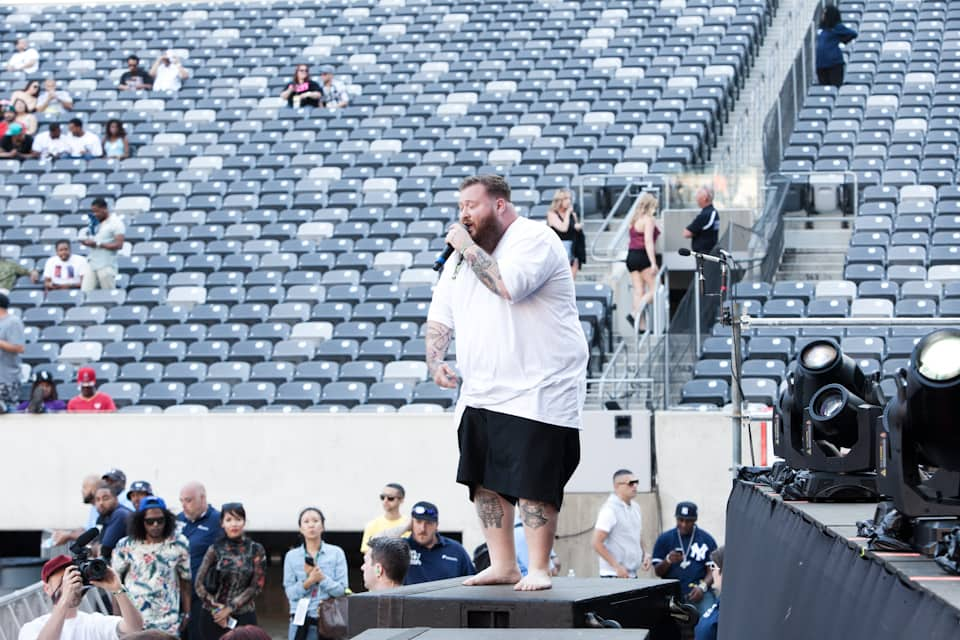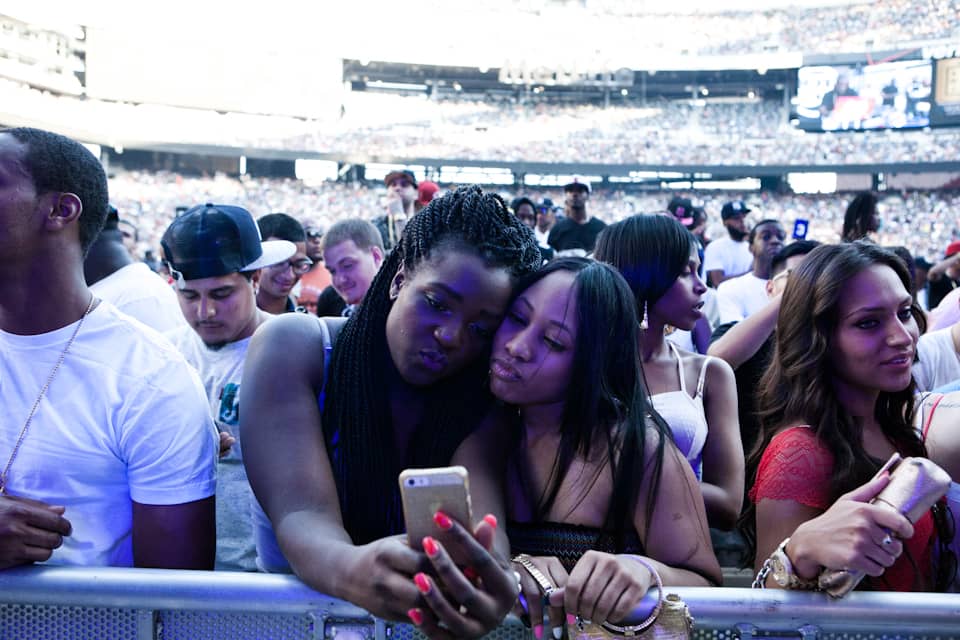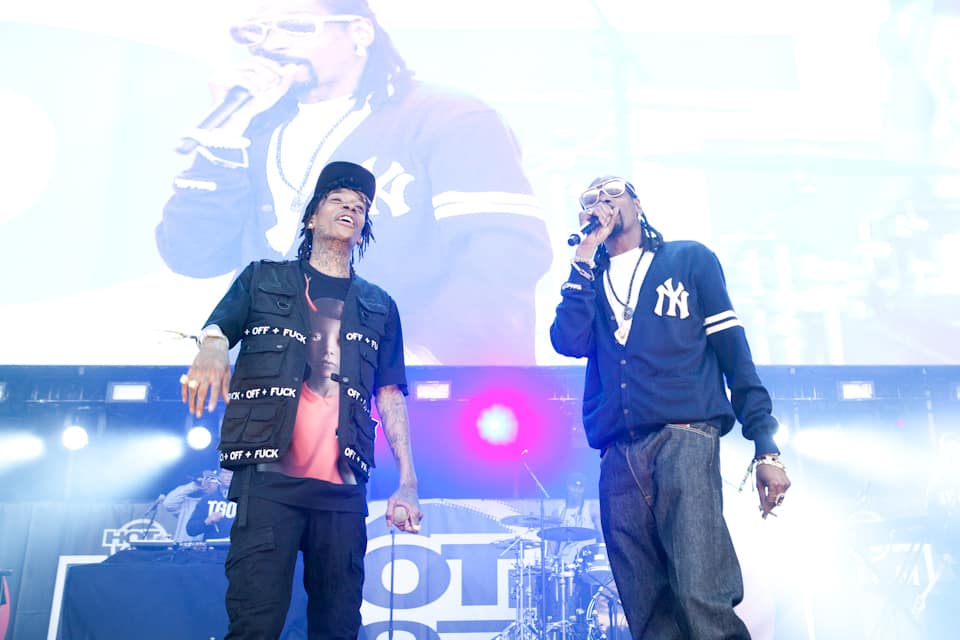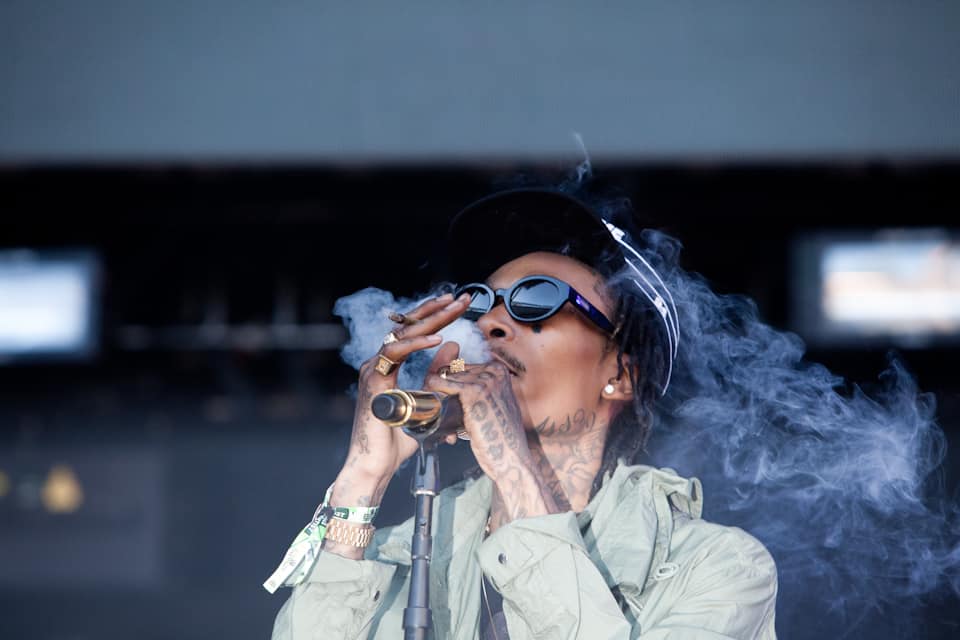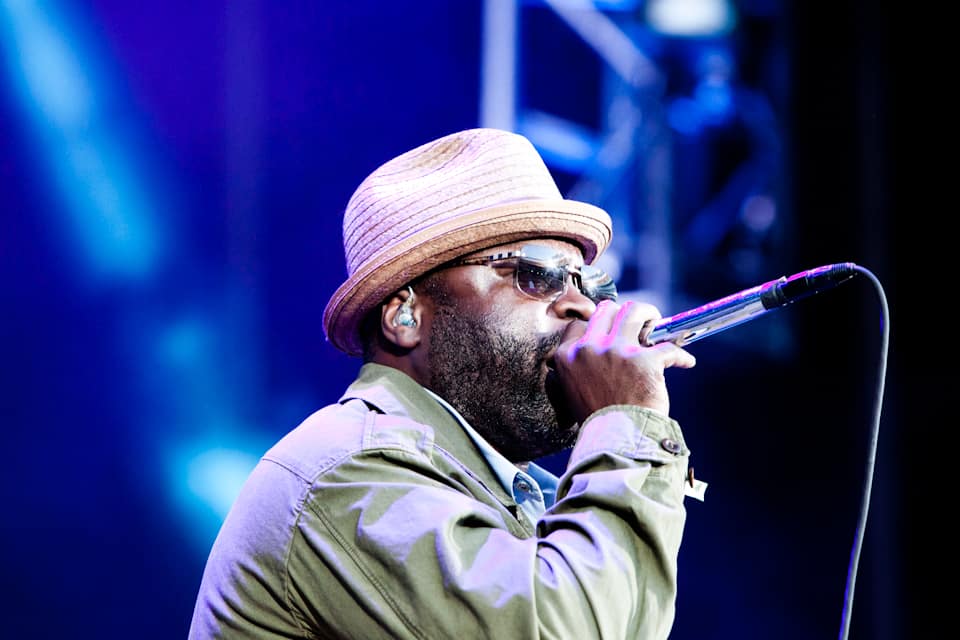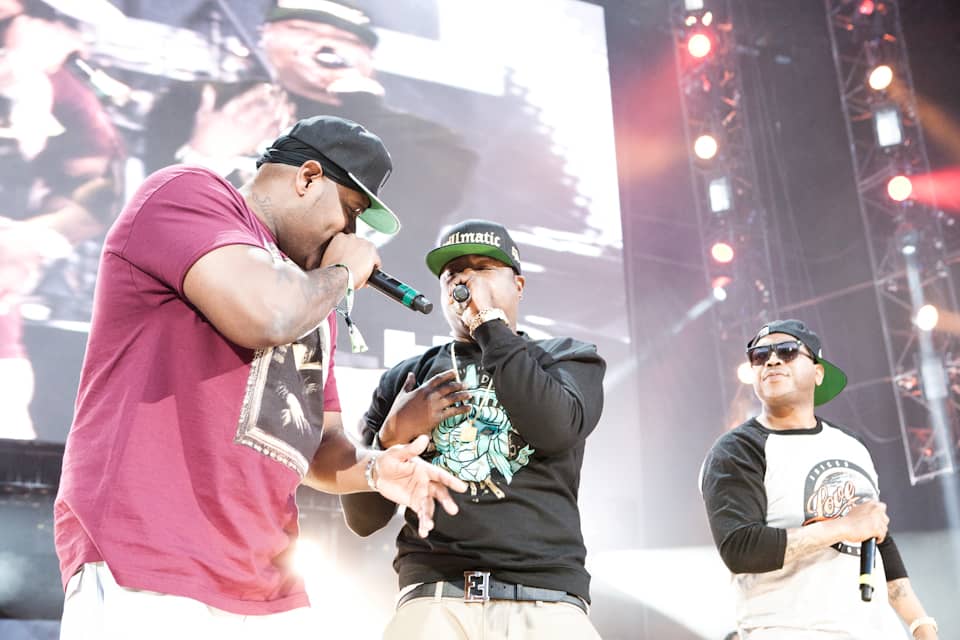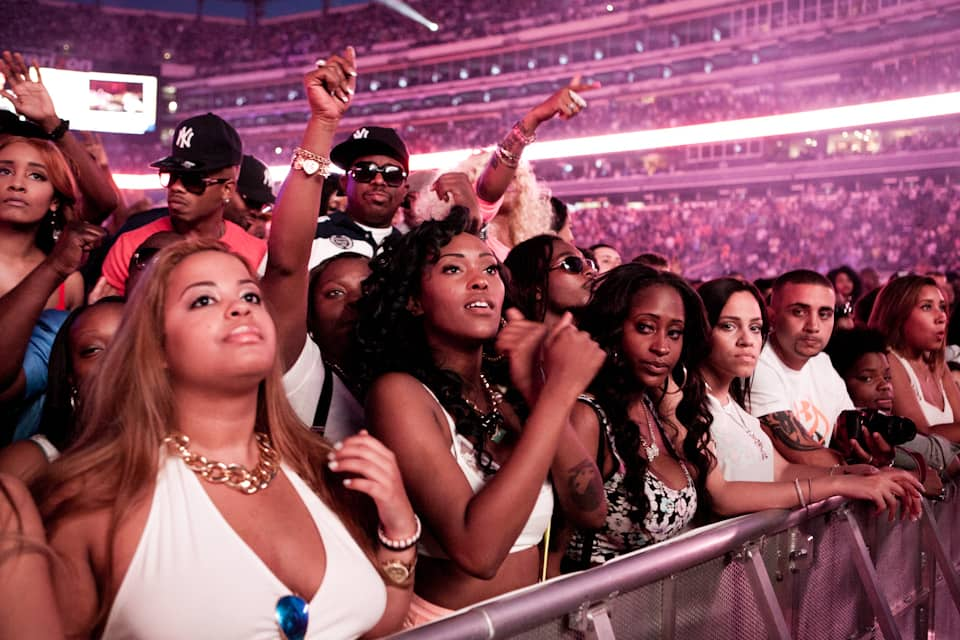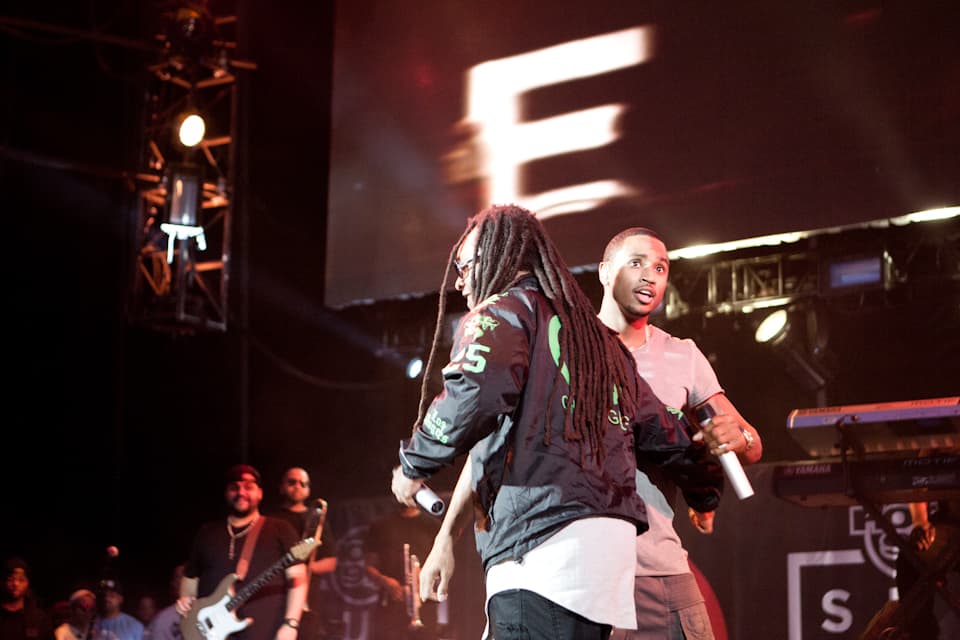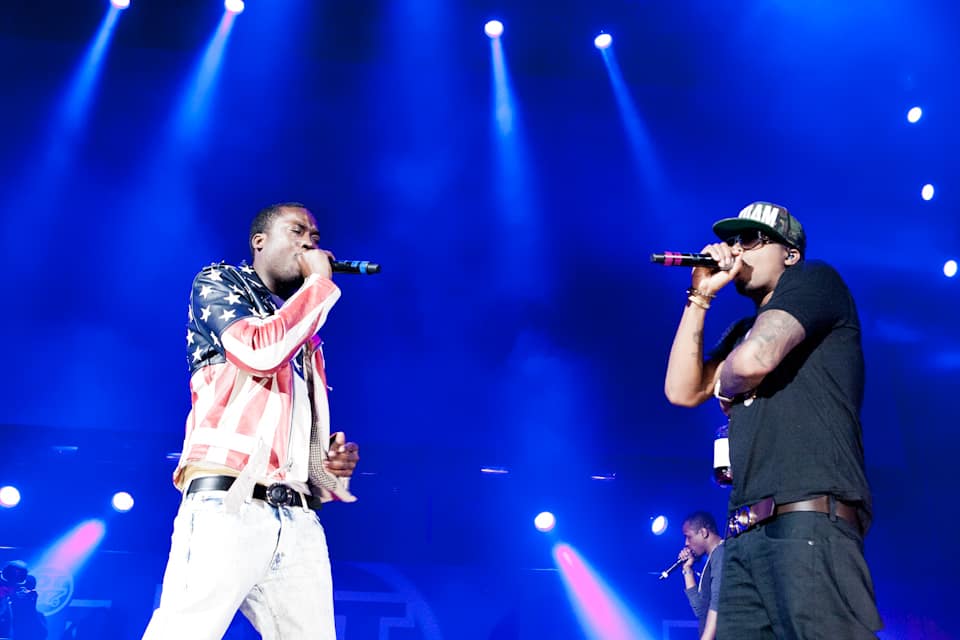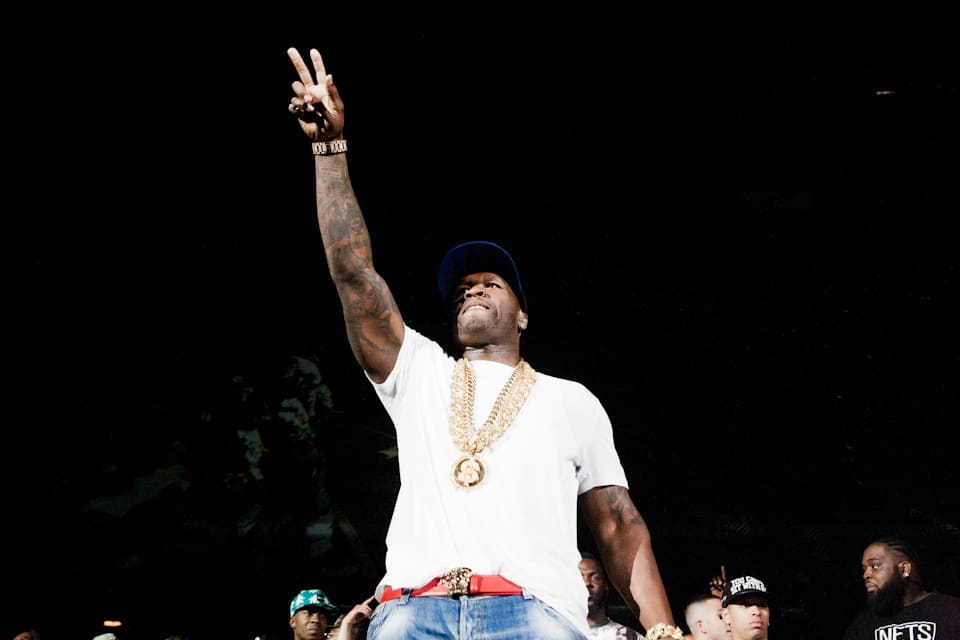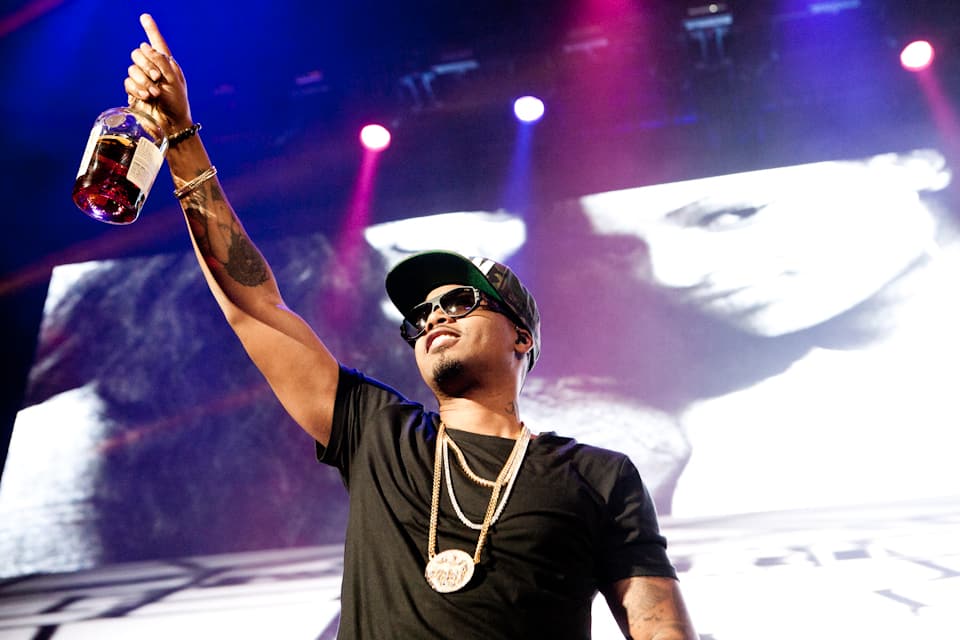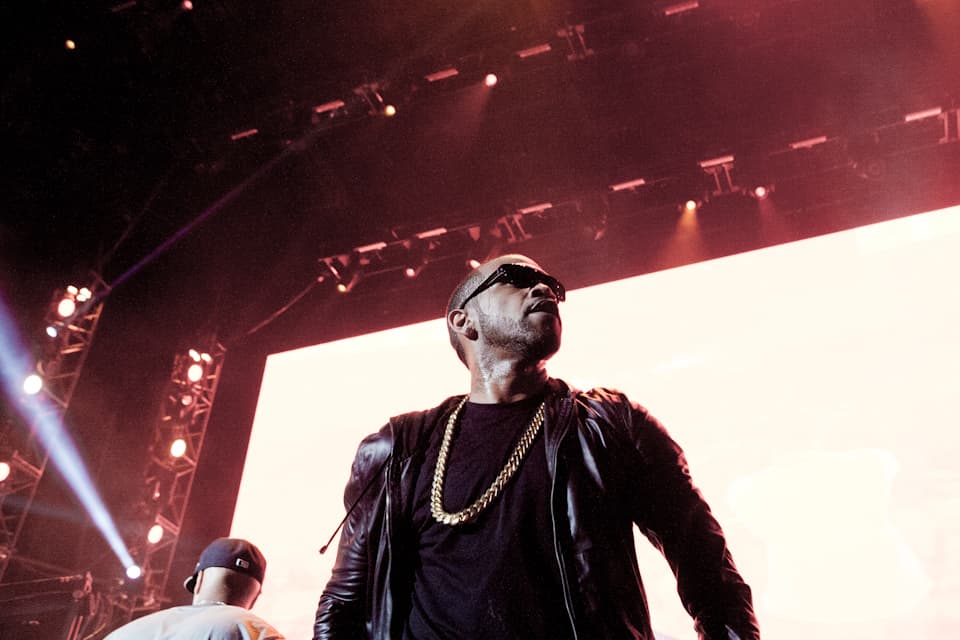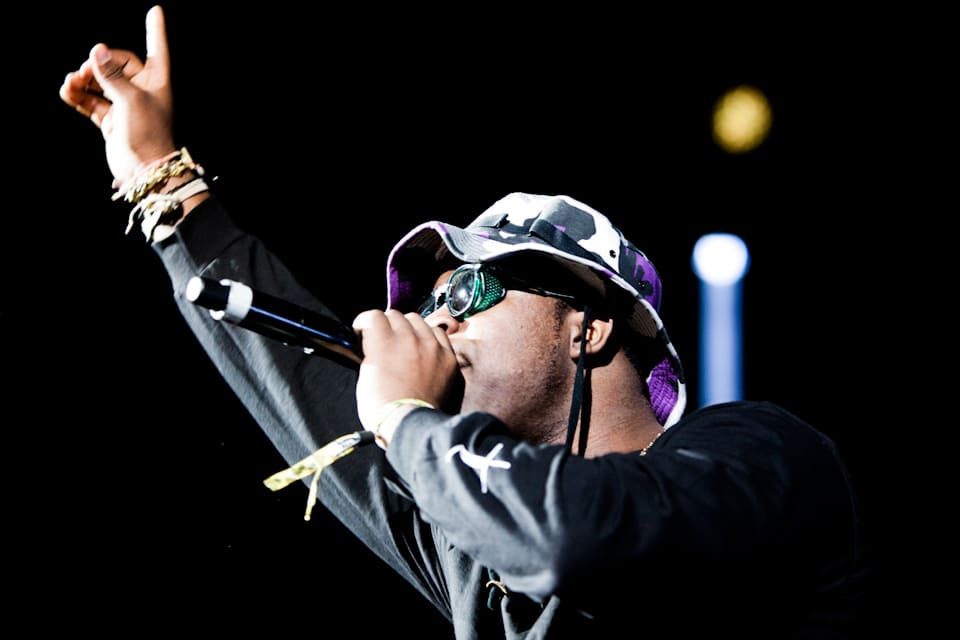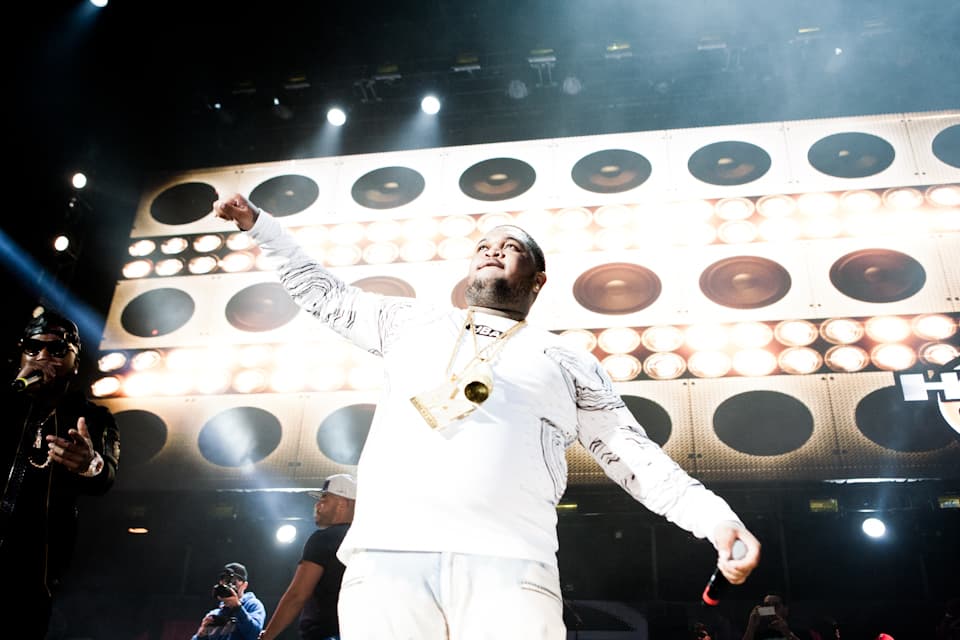The 20th edition of Hot 97's Summer Jam was filled with legends but only one indisputable king
Well into Nicki Minaj's set at last night’s Hot 97 Summer Jam, a straggler in our press box made a stray observation to no-one in particular. "You never hear anyone say 'Shout out to Manhattan!'" He was right. All day, rappers from across the city and around the country, including Nicki herself, rattled off the requisite Tri-state shouts: "Is Brooklyn in here? Where Queens at? The Bronx? New Jersey y'all here?" But when they'd land on Manhattan, almost all zoomed into ground level hoods, specifically uptown. "Shout out to Harlem! Washington Heights make some noise!”
This curiosity reflects a larger fact: it’s the styles and slang of specific neighborhoods within these boroughs that New York rap exports to the world. When Troy Ave shouts Brooklyn, he pictures Bed-Stuy, not Bensonhurst. When Action Bronson shouts Queens, he means Flushing, not Forest Hills. Bigging up an outer-borough is meant to bolster the fringe: Manhattan is the center, the slab of concrete the rest of the world knows best but remains a foreign land to many in rougher pockets of the city. New York has long been fractured into granular borders, and fluency in the city’s rap legacy demands a mastery of these ever-shifting territories and the cultures and communities they house. At this year’s Summer Jam, which for the past twenty years has been a summit for New York hip-hop—“I was at the first Summer Jam in 1994. It was B.I.G and Wu Tang, it was a beautiful day,” Nas reminisced during his set—regionalism was more fierce than ever. But instead of North vs South or East vs West, it was a city split against itself, struggling to find its bearings and face forward.
On stage, out-of-towners’ nods to local sentiments were well-intended but at times a testament to how strange things have gotten. The Roots invited The LOX, M.O.P, and Dres of Black Sheep to jam over classics like “We Gon’ Make It,” “Ante Up,” and “The Choice Is Yours,” but were beset by sound issues. Snoop emerged during Wiz Khalifa’s set donning a Yankees jersey and a stoned grin—the crowd rejoiced as if welcoming a hometown hero. Later in the evening, DJ Mustard brought out Harlem’s A$AP Ferg for a ripping rendition of his A/B hits “Work” and “Shabba Ranks,” two singles alien enough in sound that they fit comfortably between Mustard’s twangy, West Coast instrumentals.
Conversely, locals who fought to claim the stage met their own hiccups. Troy Ave used his set time to mock peers A$AP Rocky and Trinidad James, but offered little in the way of big records. He’s a capable rapper, but his derivative “Show Me Love” single didn’t connect for a crowd that was mostly there to see its predecessor, 50 Cent’s “In Da Club.” Action Bronson was a less familiar voice, but gained support with a similar aping of past New York glory: “Strictly For My Jeeps” uses EPMD’s “Rampage” well and lands crisp on unknowing ears in 2014. Both MCs are on the precipice of success, but remain tethered to the city’s past to a fault: they will need new hooks and new breaks to carve out true careers. It’s easy to take shots at new ideas, but it’s harder to come up with your own.
Nas continued to tout Illmatic’s twenty-year anniversary, but as the 4th cut of his seminal debut album bled into a surprise Meek Mill and French Montana performance, the confusion throughout the crowd suggested he might’ve done well to perform his bigger, more contemporary records. Nostalgia is religion in the current New York rap narrative, which may be a curse for a rapper who made a great debut, but also made great songs after it. The opposite was true for 50 Cent’s chaotic performance, which included a barely-there G-Unit reunion, a lengthy, inexplicable Yo Gotti guest set, a diatribe against former boss Jimmy Iovine in front the of massive Beats by Dre logos that flanked the stage, and a full-out brawl with Queens’ Slowbucks, the crew behind the local banger “This Shit Is Lit.” 50 largely avoided his biggest hits, at one point cutting off his DJ when he dropped “If I Can’t,” instead he opted to perform new cuts from his upcoming album and more obscure mixtape tracks from his early days. If label politics (i.e. eschewing his Interscope catalogue from his sets) and new beefs with old friends got in the way of 50 delivering for countless fans that came specifically for him, it’s a shame, and a testament to the sad industry chest-puffing that has crippled New York rap careers time and again.
And so, after hours of searching and screaming and claiming and reclaiming of New York rap, Nicki Minaj sauntered on stage in pasties and heels and laid it bare. Shrieking bravado, snake-eyed cool, the dirty mouth of a sailor and the quick tongue of a salesman: Nicki was New York rap in the flesh, playing the biggest hits, bringing the biggest guests, and earning the biggest reaction of the night. When she shouted out the five boroughs, she made specific mention of her hometown: “I’m from a little place called Southside Jamaica Queens,” she yelled to roars from the MetLife Stadium. In some ways, it was reassuring to see that the Summer Jam stage could still host local acts turned mega-stars, and put them in front of a crowd that’s supported them from their earliest. The day’s lesson: the battle for New York will not be fought in the boardrooms and radio booths of Manhattan. The test of every New York rapper new and old will be to reach the minds and hearts of the people in Bed-Stuy and Flushing and Crown Heights and Jamaica and Harlem, who filled the stadium this Sunday. A feat that every year proves easier said (or shouted) than done.
